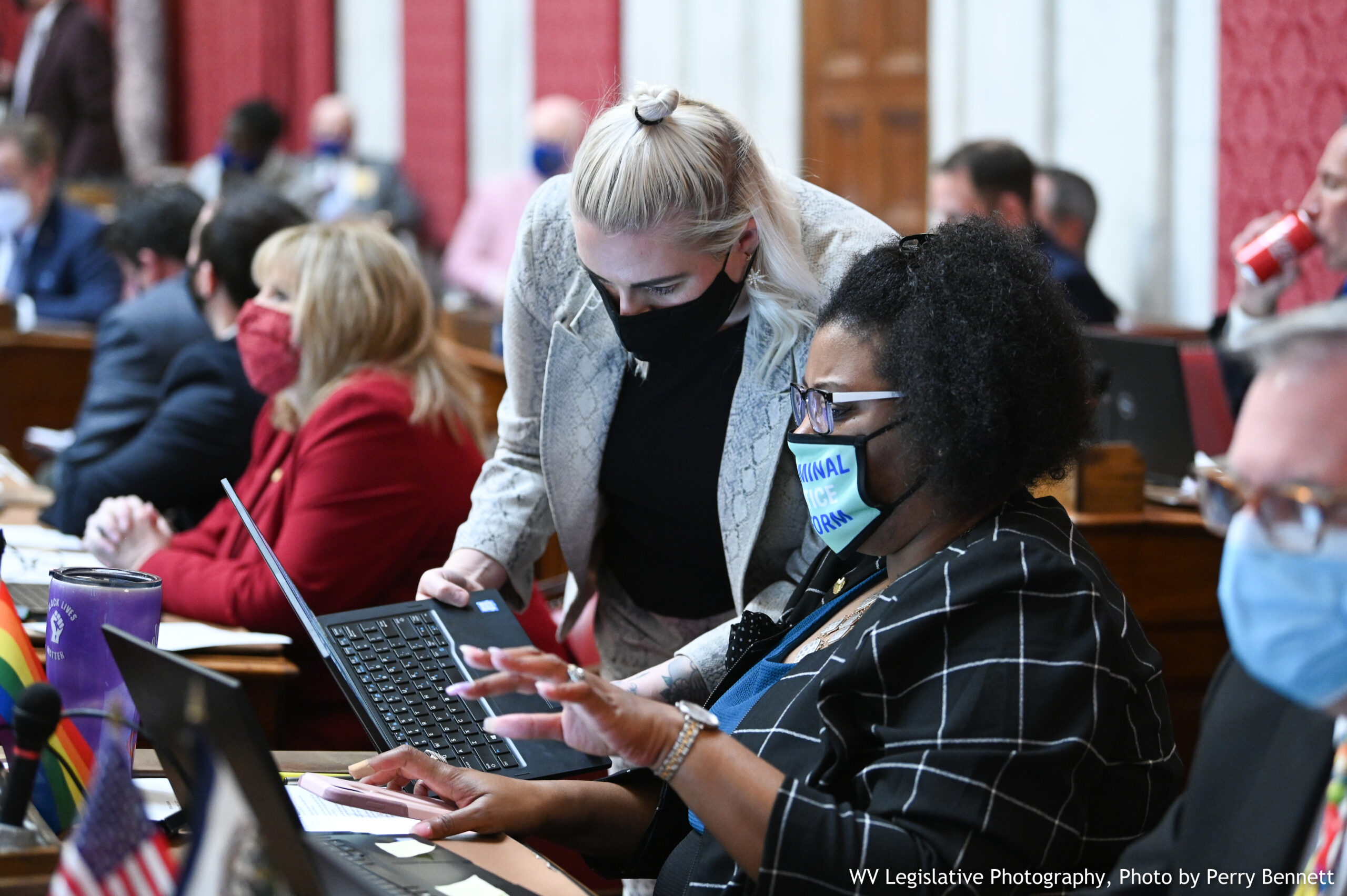MORGANTOWN – The House of Delegates on Thursday adopted an amendment calling for a constitutional convention to approve Congressional term limits.
And the Senate adopted a Judiciary Committee amendment to a House bill regarding union dues that revamps the bill to forbid any collection of dues from public employees’ paychecks.
The term limits resolution is HCR 9. Article V of the U.S. Constitution establishes two ways to amend the U.S. Constitution. First, two-thirds of both houses of Congress can propose amendments. Second, two-thirds of the 50 states can apply to Congress to call a convention of states to propose amendments.
In either case, the proposed amendments would have to be ratified either by the legislatures of three-fourths of the states or by conventions in three-fourths of the states.
HCR 9 takes the second approach for a congressional term limits amendment. This topic comes up annually in either the House or Senate or both but has yet to pass both houses.
On the House floor, several Democrats voiced the usual objections, including the runaway convention where amendments galore are proposed.
Delegate Cody Thompson, D-Randolph, said they’ve all heard many complaints of frustration with Congress and long-serving members who’ve lost touch with their constituents, but there are other ways to do it, he said. “If we call one we can throw out the entire Constitution.”
Delegate John Doyle, D-Jefferson, took a different approach, saying term limits are undemocratic. It’s sensible to impose terms limits if the office puts a lot of power in the hands of a single person – a governor or sheriff, for example – but for collective bodies term limits defeat the purpose: they deny citizens the ability to vote for who they want.
HCR 9 was adopted 76-20 and goes to the Senate. Four Democrats voted for it, one Republican voted against. All local delegates voted with their party.
Union dues bill
HB 2009 came from the House saying an employer may not withhold or divert any portions of an employee’s wages or salary to contribute to a candidate, committee or political activity unless the employee gives written permission on a form to be prescribed by the secretary of state.
It also said it is an unfair labor practice for any union to use shop fees paid by a non-member to contribute to influencing an election or operating a political committee “unless affirmatively authorized.”
Senate Judiciary rewrote it to forbid any deductions of union, labor organization or club dues and fees from an employee’s paycheck. It exempts private employers. It concedes that nothing in the bill prohibits an employee from joining or contributing to a union, labor organization or club.
Judiciary chair Charles Trump, R-Morgan, brought that committee amendment to the floor for formal adoption by the full Senate. He added a further change in response to an error Sen Mike Caputo, D-Marion, pointed out in committee. The Senate version failed to exempt existing collective bargaining agreements some cities have with various employee groups, so Trump added that to the committee version.
Sen. Mike Romano, D-Harrison, attempted to add another provision, which he also offered in committee. It would allow for the continued collection of non-political dues and fees.
As a former county commissioner, Romano said he hasn’t received any complaints this kind of deduction costs local governments any money – it’s just a computer function. “A vote against this amendment kill the teachers associations, something that’s provided a voice for our educators.”
Trump objected to Romano’s amendment saying it negates the principle of the Judiciary version, which is that it’s inappropriate for fiscal officers who handle public employee payrolls to act as collection agents for unions, labor organizations and clubs. Those groups can collect dues and fees through other means.
Romano’s amendment failed 14-20. Two Republicans voted for it.
Senators then adopted the Judiciary amendment in a divided voice vote. It will be on third reading for passage on Tuesday.
Other House action
Delegates unanimously adopted SCR 4, recognizing June 19 as Juneteenth. The resolution says, “Juneteenth, also known as Juneteenth Independence Day, Emancipation Day, Emancipation Celebration, and Freedom Day, is the oldest African-American holiday observance in the United States.”
June 19, 1865, the resolution says, is considered the date when the last slaves in America were freed when Gen. Gordon Granger rode into Galveston, Texas, and issued General Order No. 3, almost 2 ½ years after President Lincoln issued the Emancipation Proclamation.
The resolution has completed its journey through the Legislature.
The House also adopted HR 14, but not unanimously, in a voice vote. It’s co-sponsored by the House speak and minority leader and is called “Recognizing Clean Energy’s Importance to West Virginia’s Energy Future.”
It says “Clean energy – including generation from renewable sources such as wind, solar, and hydro power as well as nuclear, natural gas, and energy storage – plays an important role in West Virginia’s diverse energy portfolio. … Investing in an all-of-the-above energy approach to in-state production and development can help build a stronger, more diversified, and more resilient economy in the Mountain State.”
This is a House resolution and doesn’t go to the Senate.
HB 2969 allows a municipally owned toll bridge to be sold to a private operator, which could manage and maintain the bridge and charge tolls. The bridge would be exempt from Public Service Commission regulation.
Six Republicans and one Democrat voted against it. All local delegates voted for it. It goes to the Senate.
HB 2972 allows a person age 21 and up to manufacture liquor at home for personal consumption. The limit would be 50 gallons if just one person of age is in the household, 100 gallons if two or more people of age are in the household.
It passed 78-19 and goes to the Senate. One Democrat and 18 Republicans voted against it. Locally, Delegates Buck Jennings, R-Preston, and Guy Ward, R-Marion, voted no. A similar bill passed the House last year and died in the Senate.
Tweet David Beard@dbeardtdp Email dbeard@dominionpost.com




